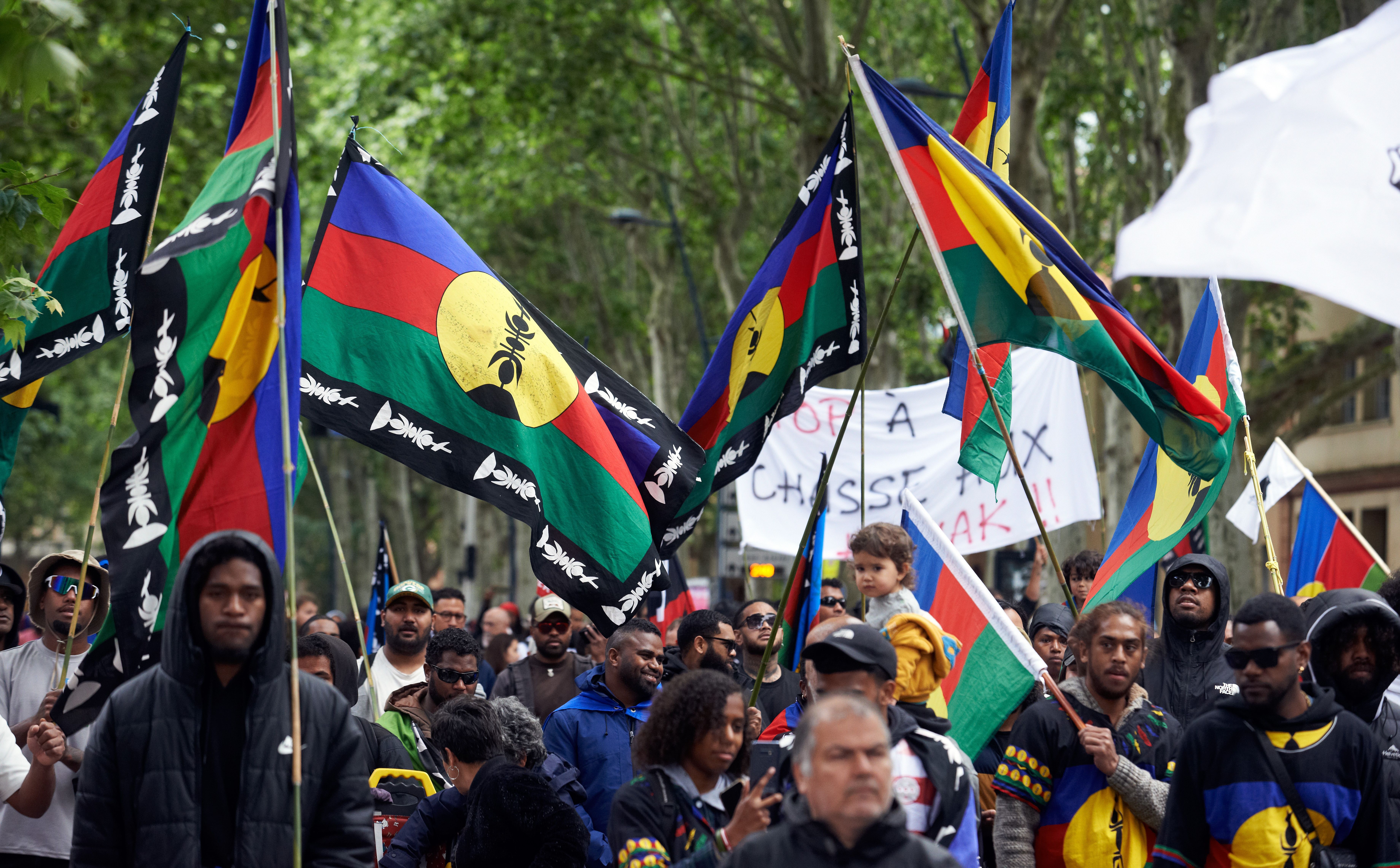The recent violence in New Caledonia erupted following a bill approved by the National Assembly in Paris that would expand voting rights to people who have lived on the islands for 10 or more years. If approved, this would mark a significant change from the current law and one that could marginalize the indigenous Kanak population’s voice in local politics.
This fear builds upon recent tensions (and a much older struggle for independence) in New Caledonia’s relationship with Paris. French president Emmanuel Macron is now traveling to the archipelago to “set up a mission,” without yet explaining what that would entail.
The indigenous Kanaks make up around 40% of the 270,000 or so inhabitants, with the remainder constituted by descendents of white European colonialists (whom the locals call Caldoches) and more recently arrived people from mainland France (many of whom often only spend part of the year on the archipelago). This change would overturn the previously (and constitutionally) agreed measure by allowing some 25,000 out of around 42,000 new voters into electoral rolls, thus likely weakening any future movements for independence.
New Caledonia is a set of islands off the eastern coast of Australia in the Pacific Ocean. The territory has been granted generally broad political rights as a French territory, however, the movement for full independence had increased in recent years. Following a landmark agreement in 1988, the Nouméa Accord, the French government restricted voting rights in such a way that was designed to give greater voice to indigenous peoples and those with a deep connection to the territory.
The Accord also stipulated the holding of three independence referendums, which took place in 2018, 2020, and 2021. he last of which was boycotted by pro-independence parties and turnout only reached 41%. Those who abstained cited the unfair conditions which the referendum was held under due to a high number of COVID cases at the time. Nevertheless, all three referendums resulted in a majority favoring the maintenance of their current status, and the French government says the issue is now resolved.
The recent violence has left six dead and hundreds more injured. French forces have launched an operation, vowing to end the unrest.
Further complicating matters, disputes of the far away Armenia and Azerbaijan have had some effect on these recent developments in New Caledonia.
France has been part of the negotiations over the Nagorno-Karabakh dispute between Armenia and Azerbaijan since the 1990s as a member of the OSCE’s Minsk Group Co-Chairs alongside the U.S. and Russia. Given France’s large Armenian diaspora and Paris’ general sympathies with Armenia, Azerbaijan had long criticized France’s role in that negotiating process. Since Azerbaijan’s war for Nagorno-Karabakh in 2020, tensions between Baku and Paris have exacerbated greatly.
Pointing to the presence of Azerbaijani flags and other placards at protests in New Caledonia, the French interior minister, Gerald Darmanin, stressed that “this isn’t a fantasy. It’s a reality,” when asked if Azerbaijan (and China and Russia) were interfering in New Caledonia. He went on to say, “I regret that some of the Caledonian pro-independence leaders have made a deal with Azerbaijan.” He stressed that, “It’s indisputable.”
“We completely reject the baseless accusations,” Azerbaijan’s foreign ministry spokesman said, adding, “we refute any connection between the leaders of the struggle for freedom in Caledonia and Azerbaijan.”
However, the connection between Azerbaijan and certain groups in Caledonia and other French overseas territories and dependencies has been increasingly visible in recent years.
The Baku Initiative Group is an organization established in 2023, amidst Azerbaijan’s blockade of the over 100,000 Armenians living in Nagorno-Karabakh, that “supports peoples fighting against colonialism.” The group organized a video conference last Thursday, which was attended by pro-independence movements in New Caledonia, French Polynesia, French Guiana, Martinique, Guadeloupe, and Corsica. The joint statement issued following the conference strongly condemned French actions and expressed their solidarity with “our Kanak friends and support their fair struggle.”
While the French view their increasing support for Nagorno-Karabakh Armenians and Armenia itself as justified in the face of ethnic cleansing, persecution, and continued military threats by Azerbaijan, Baku is working to show Paris that its action in the South Caucasus will have repercussions. As France licks its wounds from geopolitical setbacks in its former colonies across the Sahel, Azerbaijan is working to keep the pressure up by rather cynically exploiting France’s colonial past and its occasional present hypocrisy for its own political gains.














